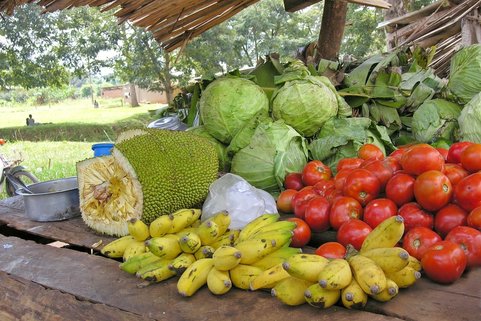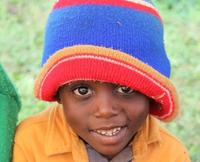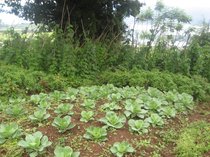PROJECT PORRIDGE
The leading cause of death in children in developing countries is protein-energy malnutrition. Undernutrition, or an inadequate intake of nutrients, is the single largest risk factor for disease and global child mortality. In Uganda, nearly 36% of all deaths of children under the age of 5 in Uganda are due directly or indirectly to malnutrition.
While progress has been made, there are still persistently high rates of malnutrition in Uganda where 38% of children below the age of 5 suffer from chronic malnutrition. Chronic malnutrition in young children results in poor growth, developmental delays, and impaired cognitive skills, which are often irreversible. Children aren't able to climb, walk, run, play and jump like other children of the same age. Their cognitive function is greatly diminished, affecting critical thinking and problem-solving, and other brain activities. Malnutrition also reduces the protection of the immune system, leaving children more vulnerable to infectious diseases. This is why it is critical to address the problems of malnutrition before the age of 5.
Food brings healing and life. So our gatherings always include warm protein-enriched porridge consisting of sorghum, maize and soybean flours, sugar and milk. When possible, we provide an additional source of protein (such as chicken) for these families during the week. Children are weighed and measured each week to determine their rate of growth. When a nurse or other health worker is available, there is also a focused assessment of the child's overall health (scalp, skin, nails, etc.). Deworming medicine is administered as needed. Many of these children contract worms through their feet, that work their way to the stomach. These parasites aggravate nutritional status by "stealing" nutrition from the gut. Worms also cause bloating and other problems with appetite and overall health.
We then take it one step further. In order to help break the cycle of malnutrition, we build and maintain a demonstration garden teaching mothers how to grow foods that supplement the diet with protein (see EQUIP). The women are encouraged to share all they've learned about childcare, nutrition and gardening with other women in their community who are not participating in Project Porridge.
While progress has been made, there are still persistently high rates of malnutrition in Uganda where 38% of children below the age of 5 suffer from chronic malnutrition. Chronic malnutrition in young children results in poor growth, developmental delays, and impaired cognitive skills, which are often irreversible. Children aren't able to climb, walk, run, play and jump like other children of the same age. Their cognitive function is greatly diminished, affecting critical thinking and problem-solving, and other brain activities. Malnutrition also reduces the protection of the immune system, leaving children more vulnerable to infectious diseases. This is why it is critical to address the problems of malnutrition before the age of 5.
Food brings healing and life. So our gatherings always include warm protein-enriched porridge consisting of sorghum, maize and soybean flours, sugar and milk. When possible, we provide an additional source of protein (such as chicken) for these families during the week. Children are weighed and measured each week to determine their rate of growth. When a nurse or other health worker is available, there is also a focused assessment of the child's overall health (scalp, skin, nails, etc.). Deworming medicine is administered as needed. Many of these children contract worms through their feet, that work their way to the stomach. These parasites aggravate nutritional status by "stealing" nutrition from the gut. Worms also cause bloating and other problems with appetite and overall health.
We then take it one step further. In order to help break the cycle of malnutrition, we build and maintain a demonstration garden teaching mothers how to grow foods that supplement the diet with protein (see EQUIP). The women are encouraged to share all they've learned about childcare, nutrition and gardening with other women in their community who are not participating in Project Porridge.




